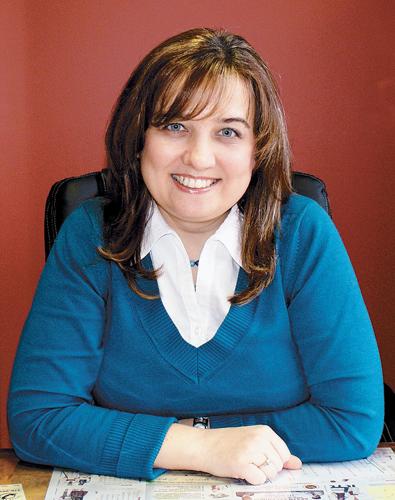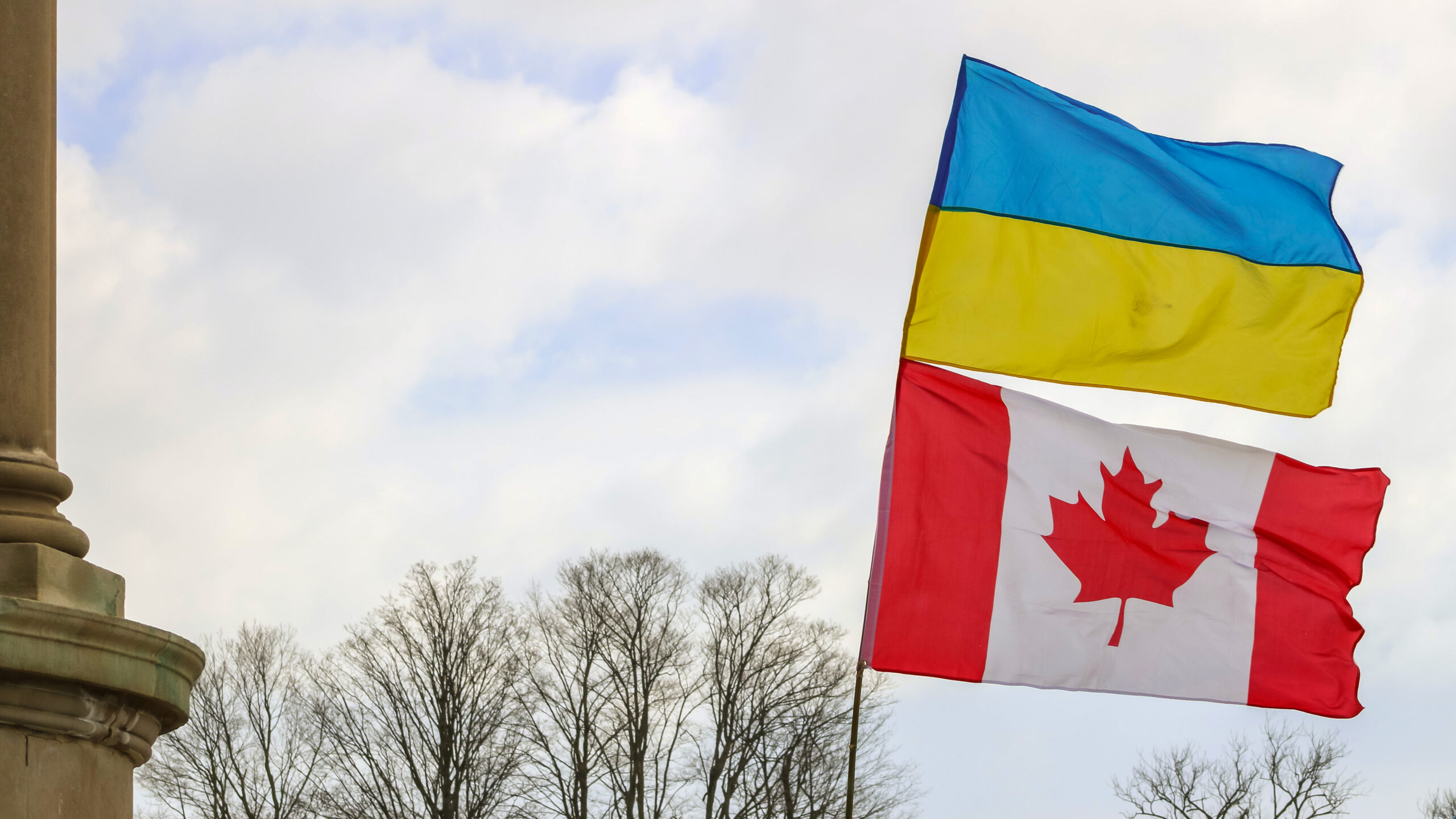More than 100,000 Ukrainians arrived in Canada to escape the war in Ukraine according to statistics given by the Canada Border Services Agency. All of them received temporary residency without claiming refugee status.
“I need to work hard every day to survive in Canada,” said Inna Onishchenko, a Ukrainian who came to Canada in July.
Onishchenko told Humber’s Et Cetera that since her arrival to Canada, she feels “vulnerable” and “unprotected” as a temporary resident.

Inna Onishchenko, a Ukrainian newcomer who came to Canada to escape the war in Ukraine. Photo credit: Angelina Kochatovska
When she came to Canada, she started her life from scratch without knowing anyone and being proficient in English.
“I just wanted to escape the horror I faced back in Ukraine,” Onishchenko said.
“I’m grateful for everything the government of Canada has given me as support,” she said. “But I don’t feel stability being a temporary migrant.”
To help Ukrainians, the federal government announced a special program to help them leave Ukraine and move to Canada.
The Canada-Ukraine Authorization for Emergency Travel (CUAET) is the only efficient way for Ukrainians and their families to come to Canada, as this new measure streamlines current visa and travel requirements, eliminating most application and processing fees while offering accelerated, prioritized processing.
The Department of Immigration, Refugees, and Citizenship (IRCC) said in an email to Humber’s Et Cetera, the CUAET is a measure for Ukrainians and their family members who want to come to Canada as temporary residents while the war in Ukraine unfolds and then return home.
“It is not a refugee program,” the IRCC said in its email. “Ukrainians wishing to immigrate to Canada permanently can apply for permanent residence under a variety of different immigration programs and streams.”
The IRCC said there are often similarities in how people may be fleeing persecution of some sort, but the immigration response may differ.
However, some Ukrainians don’t understand why they can’t receive refugee status automatically as other refugees from other countries such as Afghanistan and Syria.
“We serve 1,000 people per month, so there are definitely questions about getting refugee status when the war began,” said Ludmila Kolesnichenko, the executive director at CUIAS Immigrant Services, which helps Ukrainians settle in Canada.

Ludmila Kolesnichenko, the Executive Director at CUIAS Immigrant Services. Photo credit: CUIAS Immigrant Services
Kolesnichenko said refugee status would help Ukrainians avoid some difficult situations.
“If [Ukrainians] had refugee status, they would be eligible for more financial assistance from the government,” she said.
The top challenges faced by Ukrainian newcomers are finding a place to stay and a job.
“Without any job experience in Canada, it’s hard to find [work]. You need to send a hundred applications to receive at least one invitation for a job interview,” Onishchenko said.
She also said there were some instances in which landlords in Canada tried to raise the rent knowing the demand for housing was high among Ukrainians.
“Some landlords started to raise the rent price when more Ukrainians came to Canada,” Onishchenko said. “I heard some bad stories from Ukrainians when landlords said one price in the beginning and when their agreement ended, they demanded a higher rent.”
She said she met some people from Afghanistan who are refugees and have more opportunities than she has.
“From what they told me, they have more stability in their lives in Canada because they have financial support per month so it’s easier for them to pay the rent,” Onishchenko said.
“I feel that Ukrainians are perceived more as a labor force than people who fled the war,” she said.

